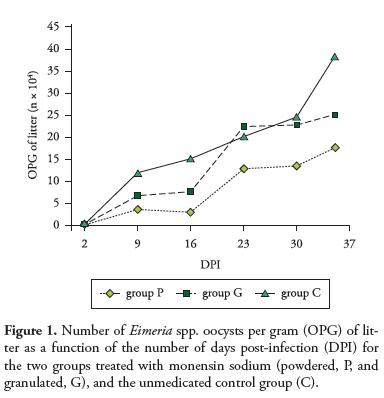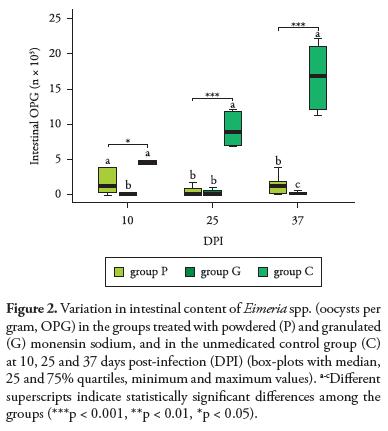The aim of the present study was to investigate the efficacy of monensin sodium grain size on controlling coccidiosis in broiler chickens. Three hundred and fifty Cobb 700 chicks were infected experimentally with 8 × 10(4) sporulated oocysts of Eimeria spp. The birds were fed with diets supplemented with powdered (n = 150) or granulated (n = 150) monensin, with particle sizes of ≤100 µm and 450-650 µm, respectively. The remaining chicks (n = 50) were used as an unmedicated control group. The birds’ weights and number of oocysts per gram of litter in each group were recorded weekly. A total of 96 birds were randomly selected and culled during the trial. Their intestinal oocyst counts and lesion scores were determined. No significant differences in body weights were found between the groups at the end of the study. The percentages of infected animals, oocyst counts and lesion scores were significantly higher in the control group than in the other two groups; the two treated groups did not show any appreciable differences to each other. Enteritis was observed in 14 birds, all in the group supplemented with granulated monensin. These results suggest that powdered and granulated monensin have comparable efficacy in controlling coccidiosis in broiler chickens. However, treatments with monensin sodium of high grain size may be subject to contraindications relating to enteritis.
Gallus gallus; coccidiostatic drug; Eimeria; particle size




